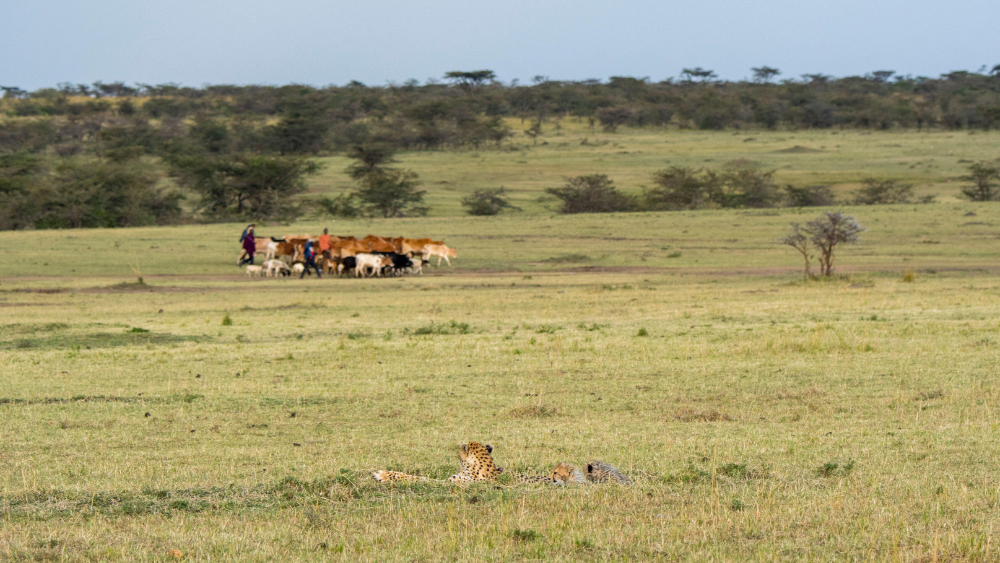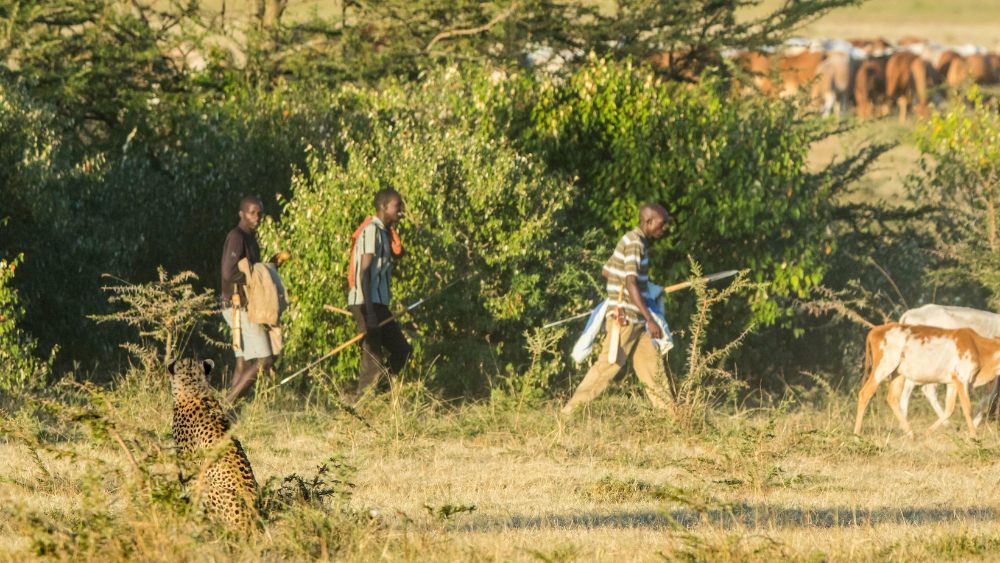Living with cheetahs
The cheetah’s homeland, for which they rely on for food, shelter, and breeding, has reduced by 91% of its historic range. Human population growth, climate change and bush encroachment, has significantly reduced cheetah habitat, forcing the majority of cheetah populations onto unprotected land resulting in human-wildlife conflict.
Very few cheetahs thrive in parks and reserves because of the abundant presence of larger predators and therefore most cheetahs are pushed onto farmland for survival.
With cheetahs and humans living in close proximity, human-wildlife conflict is inevitable. With natural prey reducing, cheetahs can attack livestock which results in retaliation from farmers who trap or kill the cheetahs to protect their livelihoods.

Future Farmers of Africa
CCF’s vision is to see a world in which cheetahs live and flourish in coexistence with people within a sustainable system. And in Namibia, a strong hold for free-roaming cheetahs, that’s exactly what we have done.
Around 20% of all of Africa’s cheetahs live in Namibia. Here they live alongside humans, most of which are commercial and communal farming communities are raising cows, sheep, and goats.
To communal and rural farmers, the loss of even a single animal can be devastating. Cheetahs and other predators are commonly viewed as a threat to the livelihoods of the farming community. During the 1980’s, livestock and game farmers halved the cheetah population in Namibia.
It was a battle that the cheetahs could not win without intervention.

To protect wild cheetahs, CCF works with farmers to investigate, develop, and implement predator-friendly livestock and wildlife management techniques. And over the years we have implemented multiple areas of work to benefit the communities, farmers, and wild cheetahs.
Future Farmers of Africa (FFA) Training
CCF responds to calls about problem predators and give assistance in preventing livestock predation. FFA workshops are provided to teach farmers on how to implement methods to reduce attacks by predators.
CCF’s Model Farm and On-Site Farmer Training at CCF
CCF trains farmers on site at CCF and also promotes predator-friendly livestock management solutions in farmer publications, agricultural shows, over the radio, communal meetings, and within agricultural coursework at colleges and universities.
Farmer Carnivore Help Hotline
Farmers across Namibia can contact CCF directly 24/7 to discuss any issues and solutions relating to cheetahs and other carnivores on their farms.
Livestock Guarding Dog Programme
The Livestock Guarding Dog Programme has been very successful at reducing livestock losses by up to 90% and thereby reducing farmers need to trap or shoot cheetahs. Farmers given a LGD receive FFA training and are also trained on how to support their dog’s development.
Scat Dog and Camera Trap Research
CCF deploys camera traps to determine population demography and density in a non-invasive manner. Going beyond camera traps, CCF also uses scat detection dogs to help study cheetahs. The scat (poop) found by these dogs provides species and gender identification by DNA analysis, insights on reproduction and health, and a predator’s diet, which is vital information to evaluate human-wildlife conflict situations.
One Health
By delivering rabies vaccinations to domestic dogs and cats we are able to provide a beneficial health service to people; good health plays a big part in the ability of people to manage their resources and gain economic advantage properly. We also study the connection between vaccine delivery reduction of the spread of rabies in wildlife.
